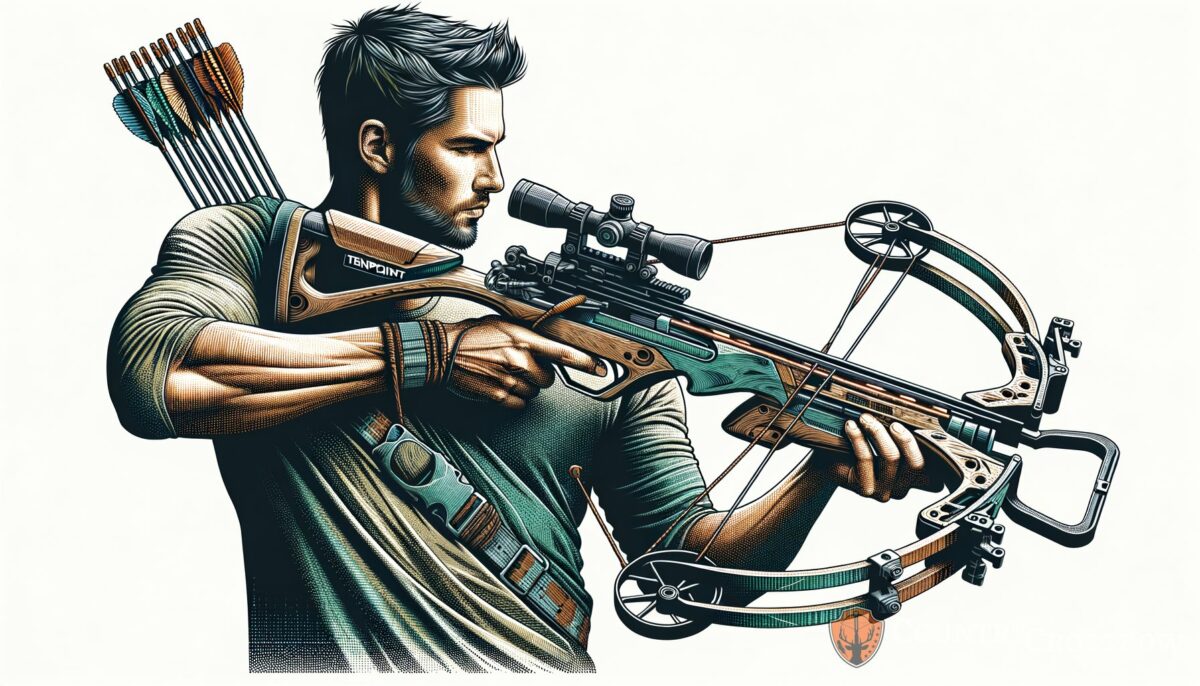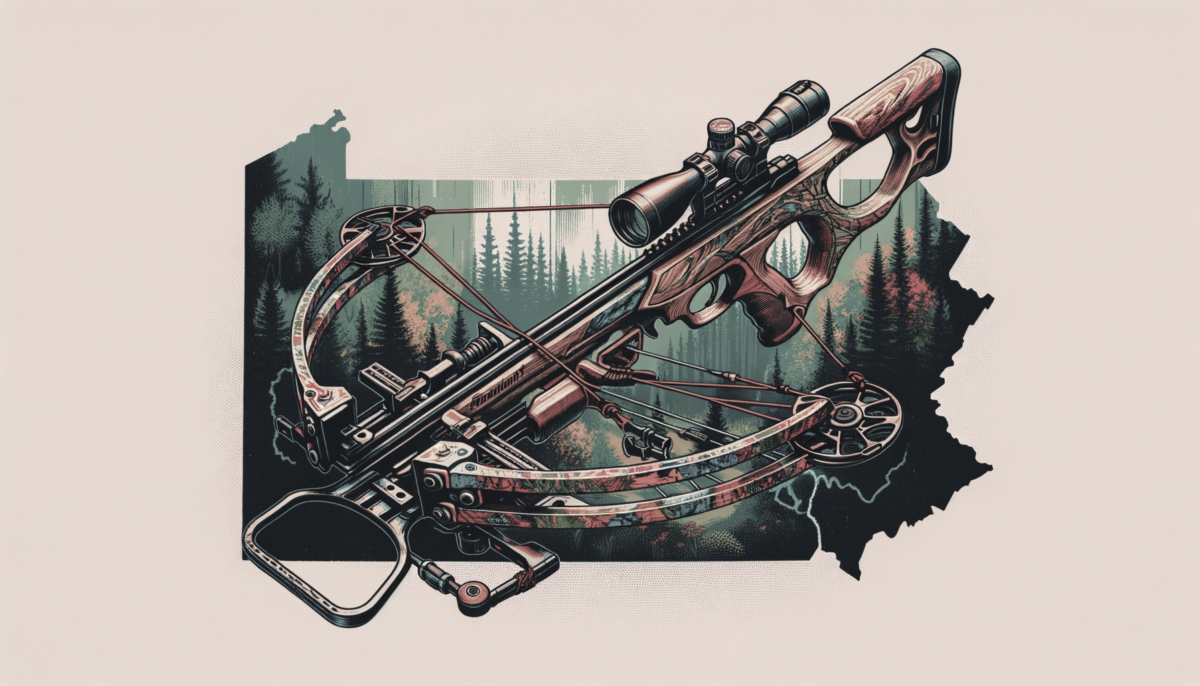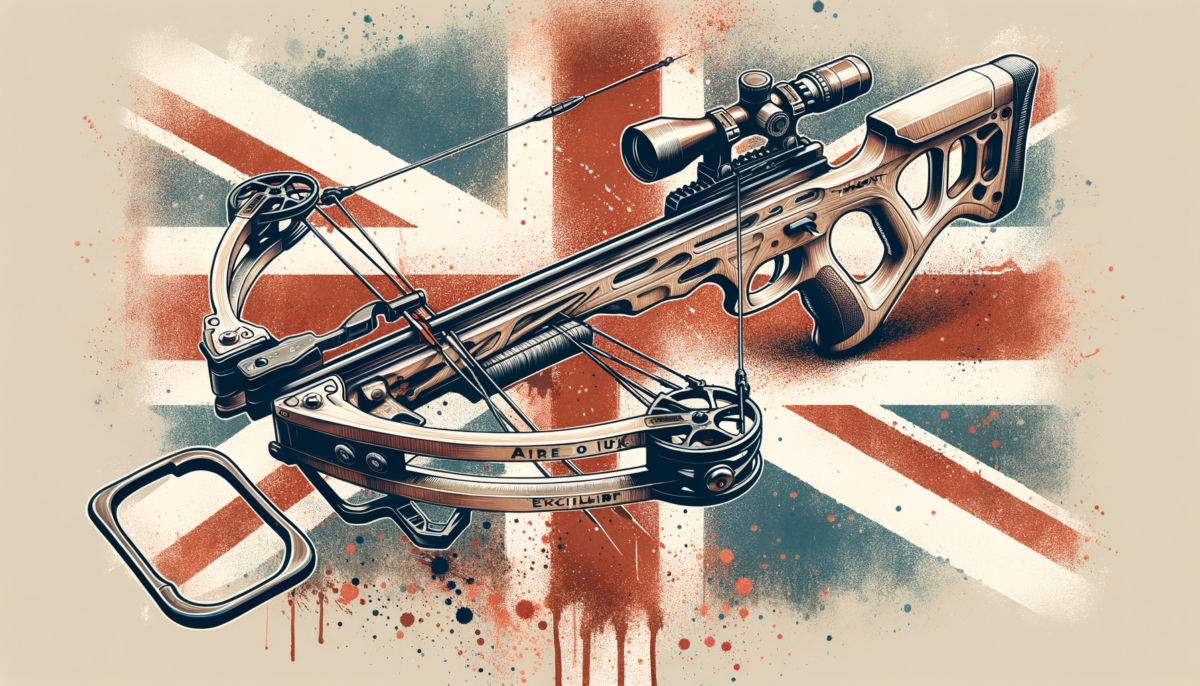Ever wondered how fast a crossbow bolt zips through the air when you let it fly? Choosing the right gear is essential whether you’re hunting or hitting targets. Find your perfect crossbow here to ensure your bolts are not only swift but also on target. We’ll dive into the speed of crossbow bolts and its affect on your archery game.
Key takeaways
- Crossbow bolts can travel between 300 and 450 fps.
- Choose bolts and accessories that suit your crossbow for better performance.
- Balance between speed and accuracy is crucial for effective archery.
How fast is a crossbow bolt?
Crossbow bolts can reach eye-blinking speeds, typically ranging from 300 to 450 feet per second (fps). This pace makes them formidable for both hunting and sport shooting. The velocity of a bolt is crucial as it determines both its flat trajectory and its ability to hit hard.
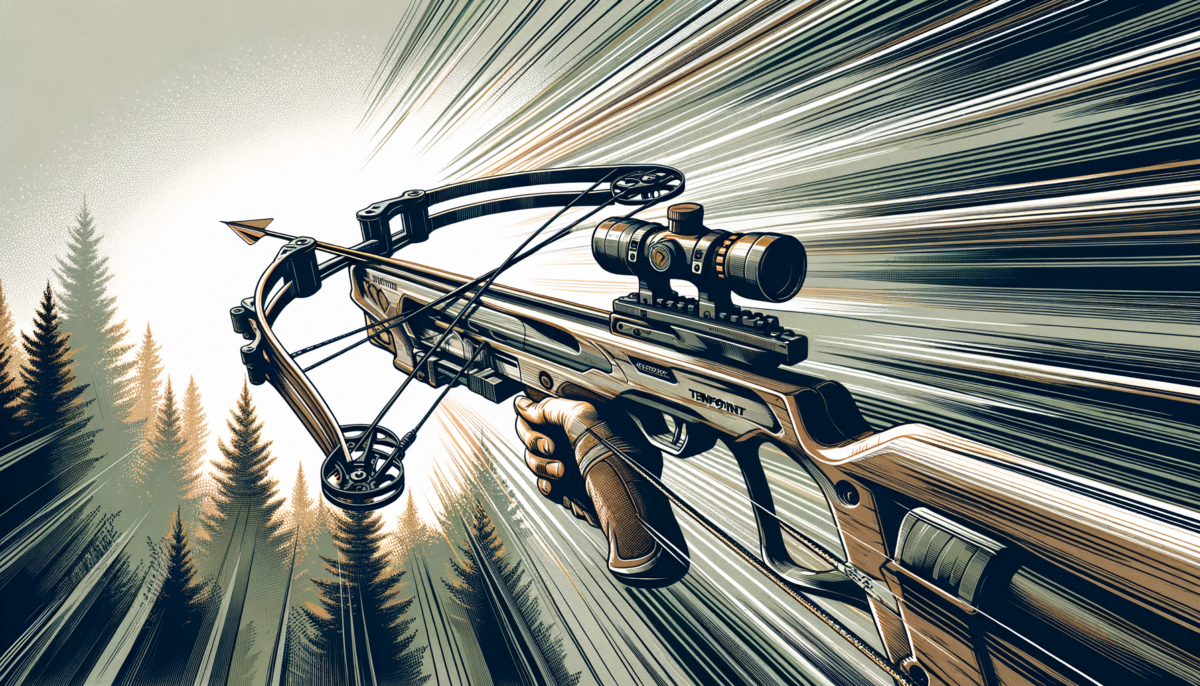
- Factors Affecting Bolt Speed:
- Crossbow design and mechanical efficiency
- Bolt weight and build
- Draw weight and power stroke of the crossbow
These elements mesh together to determine your bolt’s speed. Bolt design has evolved significantly, with manufacturers continually pushing the boundaries. Heavier bolts will generally travel slower but bring more kinetic energy to the target. Lighter bolts, on the other hand, tend to be faster. It’s crucial to balance speed with affect power for optimal performance. Interested in the dynamics? Get into the nitty-gritty with crossbow mechanics.
From my perspective, although I’m no engineer, I’m of the opinion that faster isn’t always synonymous with better. Sure, a high-speed bolt can mean a flatter trajectory and less time for game to react, which is a plus when you’re out in the field. Check out some crossbow hunting techniques for more on that.
However, you might sacrifice accuracy for speed if the bolt’s too light or the conditions aren’t ideal. That’s why I say go for the sweet spot—find a bolt that offers a balance of speed and mass for your particular crossbow. Because at the end of the day, hitting the target is what counts.
Barnett Whitetail Hunter II

Barnett Whitetail Hunter II
What determines the speed of a crossbow bolt?
A crossbow bolt’s velocity is influenced by several factors you need to consider for top-notch performance.
Crossbow power stroke and draw weight
The power stroke is the distance the string travels from drawn position to rest. A longer power stroke can increase bolt speed. Plus, crossbows with higher draw weight—the pounds of force required to pull back the string—typically launch bolts at a swifter pace. Remember though, more draw weight means more muscle to cock the crossbow.
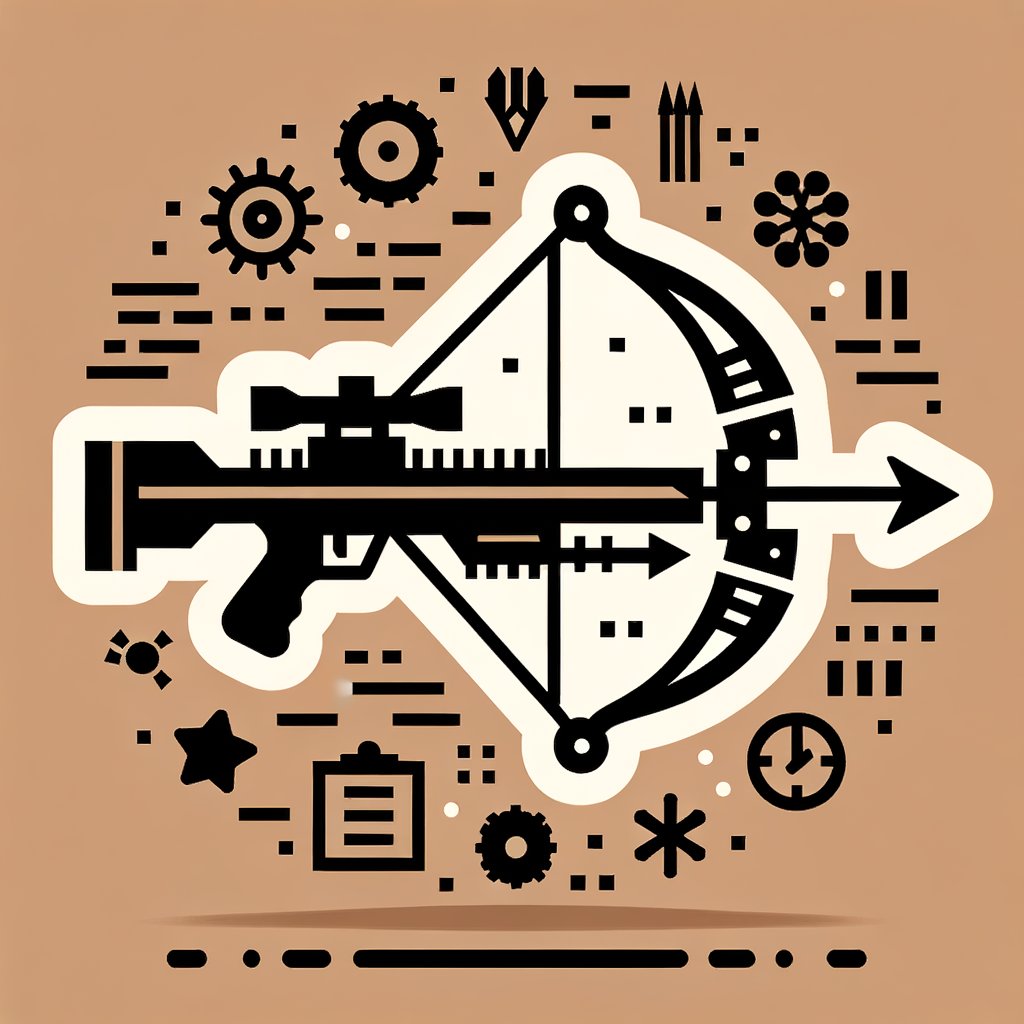
Remember, the trick isn’t just to send a bolt flying at hair-raising speeds; it’s about delivering a precise, effective shot whether you’re at the range or in the wild.
Bolt weight and aerodynamics
Bolt mass, measured in grains, directly affects speed. Lighter bolts fly faster but can be more affected by wind drift. Aerodynamics also plays a role. Slimmer bolts with smaller vanes cut through air more efficiently, boosting speed. Balance is key between weight and speed for that bulls-eye shot. Here’s where you can source your top-notch bolts.
How bolt speed affects crossbow hunting
Bolt speed is a big deal when you’re out hunting. Here’s why:
Kinetic energy and game on
When hunting larger game, you need a bolt that delivers enough kinetic energy to ensure a clean and ethical kill. Speed converts to energy, but too much speed with not enough mass might not do the job.
Noise consideration
Certainly, a fast bolt gives less reaction time for your prey. Yet the flip side is that most high-speed crossbows are louder when fired, possibly spooking the animal. Being stealthy is part of the challenge. Gain the edge with crossbow hunting safety tips by visiting here.
Regulations surrounding bolt speed
It’s not just about equipment preference, but also legal specifications.
Crossbow speed limits and laws
Some regions have minimum bolt speed requirements for hunting specific game. On the flip side, too-fast bolts may be restricted in certain competitive sports. Always be on target with the law by checking out regulations such as those in Florida.
Uk limitations
Are crossbows legal in the UK? They are, but with conditions. UK laws dictate crossbow possession and use, which could include mandates on bolt speed. Find out more about UK regulations right here.
Accessories that enhance bolt speed
Striving for optimal bolt speed? Check out these add-ons:
High-performance scopes
A top-tier crossbow scope can help compensate and adjust for bolt speed, ensuring precision. This is an accessory where technology enhances skill. Peek into some of the best crossbow scopes.
Broadheads affect
The type of broadhead you choose also affects the flight. While not directly impacting speed, aerodynamic broadheads maintain velocity over distance. This is all about making each shot count. Check out the most effective broadheads for your bolts.
In the debate of bolt speed versus accuracy, I stand firm that while speed is impressive, precision is paramount. A true shot is one that’s well-aimed, regardless of how fast the bolt travels.
Here’s a rundown of critical factors impacting the speed of crossbow bolts, based on the research available:
| Factor | Affect on Speed | Notes |
|---|---|---|
| Crossbow Design | Higher power stroke and draw weight increase speed | Longer power stroke = Faster speed |
| Bolt Weight | Lighter bolts are faster | Balance mass for energy transfer |
| Aerodynamics | Slimmer bolts are quicker | Reduces wind resistance |
More archery tips
Before heading out with your crossbow or practicing at the range, consider these extra tips for enhanced performance. They could make the difference between a near-miss and a bullseye.
- Practice Regularly: Consistency is key for muscle memory and improving accuracy.
- Tune Your Crossbow: Make sure your crossbow is properly tuned and maintained.
- Choose the Right Arrows: Select bolts that are the correct length and weight for your crossbow.
- Mind Your Form: Pay attention to your stance, grip, and release. Small improvements can lead to big gains in accuracy.
- Know Your Limits: Don’t take shots beyond your comfortable range, especially when hunting.
- Use a Rangefinder: This can greatly aid in estimating distance and improving shot accuracy.
When it comes to crossbow archery, there are certain dos and don’ts to keep in mind:
| Do | Don’t |
|---|---|
| Invest in quality gear | Overlook regular maintenance |
| Practice in various weather conditions | Rush your shots |
| Follow safety protocols at all times | Use damaged or inappropriate bolts |
Advantages and disadvantages of Faster Crossbow Bolts
Speed is a double-edged sword in the world of archery. Let’s take a shot at understanding the advantages and disadvantages that come when bolts are flying fast.
Advantages
- Flatter Trajectory: Faster bolts experience less drop, extending range.
- Reduced Reaction Time: Game has less time to react to the sound of a fast shot.
- Greater Energy: Higher speed can translate to more affect power on target.
Disadvantages
- Wind Drift: Faster bolts can be affected more by crosswinds.
- Wear and Tear: Increased speed can lead to more equipment stress and damage.
- Noise: High-velocity crossbows may generate more noise, potentially spooking game.
Remember, the trick isn’t just to send a bolt flying at hair-raising speeds; it’s about delivering a precise, effective shot whether you’re at the range or in the wild.
If you are a visual learner, check out this video titled ‘First Time Crossbow Hunting Tips’
Frequently asked questions (FAQ)
Does temperature affect crossbow bolt speed?
Absolutely. Extreme temperatures can affect both the crossbow and the bolt. Cold weather can make bowstrings more brittle and reduce their elasticity, resulting in a slower shot. Similarly, excessive heat can expand materials, potentially decreasing tension and power. Always consider the climate when you prep for a session.
Can crossbow bolt speed be too high for accuracy?
Yes, it can. Extremely high speeds may compromise accuracy due to increased bolt vibration, which can throw off the trajectory. It’s about finding a velocity that maximizes both speed and control. Sometimes a moderate pace facilitates better precision.
How do I choose the right crossbow for optimal bolt speed?
When selecting a crossbow, you want to look for a balance of power and usability. Check the manufacturer’s specifications for bolt speed and choose a model that fits your physical abilities and skill level. A crossbow that’s too powerful may be difficult to handle, negating the benefits of faster bolt speed. Always consider the crossbow’s design, draw weight, and power stroke. If in doubt, read reviews and ask for expert advice from seasoned archers or retailers.
Final thoughts
Navigating the realm of crossbow archery demands a solid understanding of bolt speed and its effects. Whether you’re targeting the perfect deer or aiming for the center during competition, the speed of your crossbow bolt plays a pivotal role in your success. Remember, archery is not just about equipment; it’s an art form that combines skill, practice, and the right mindset.
How will you balance speed and accuracy in your next archery adventure? Did I cover everything you wanted to know? Let me know in the comments section belowI read and reply to every comment. If you found this article helpful, share it with a friend, and check out my full blog for more tips and tricks on crossbow hunting and archery. Thanks for reading and keep aiming true.



